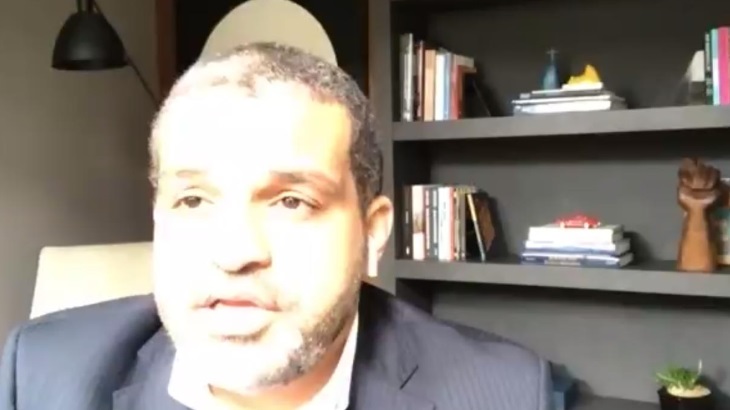Speaking as part of a high-level panel at World Nuclear Association's Strategic eForum on Sustainable Finance on 18 March, Mendes Cabral said BNDES is learning lessons from its previous involvement with the Angra 3 project. In addition, it is working to expand its issuance of green bonds to include nuclear energy within a wider, environmental, social, and governance (ESG) framework.
Two nuclear power units - Angra 1 and 2 - supply about 3% of Brazil's electricity. The units are operated by Eletrobras subsidiary Eletronuclear.
The Angra 3 project has a long history. Construction originally started in 1984 on a 1405 MWe (gross) pressurised water reactor designed by German company KWU, but this faltered two years later. At that stage some 70% of the plant's equipment was said to have already been purchased and delivered to the site. A return to construction was approved in 2007, and an industrial agreement for the unit's completion was signed with Areva in December 2008. The project was suspended again in mid-2015.
In June last year, Brazil's Investment Partnership Programme (PPI) council approved a plan to complete the unit. Created by the government to expand and strengthen the relationship between the state and the private sector, the PPI's main objective is to generate jobs and growth for the country through new investments in infrastructure projects and privatisation.
"We are changing a little bit in what we aim to do regarding financing nuclear projects while we learn from the past," Mendes Cabral said. The stops and starts with the project were not because of financing issues, he said, but lay rather in "having the right structure".
BNDES has been hired by the Brazilian government and by Electrobras to develop the project to build the unit at an estimated cost of USD3-4 billion.
"We believe that with the right structure put in place, and also with the government aligned with the investment in nuclear power plants in the longer term, Brazil will be able to attract not only financers, not only global and local banks, to finance the project, but also engineering and construction companies," Mendes Cabral said.
"Right now we're in the process of hiring an adviser to work with us, BNDES, to redesign the whole project to understand what has been done so far and what needs to be done going forward. We expect to have that by the end of this year and then we will start to work with banks to provide the financing for the project. We expect to have finalised that by mid to late 2022."
BNDES will still play a role in the project, but not in the same way it did previously. "Quite frankly, we failed as being the sole provider of financing," he said. "We need to work together with the private sector and that's what we're doing."
The conference was moderated by Sama Bilbao y Léon, director general of World Nuclear Association, who asked whether Brazil's green bonds could include nuclear power projects. BNDES issued its first green bond - worth USD1 billion - in 2017.
"We were the first financial institution in Brazil to issue a green bond in the global market," Mendes Cabral said, but it was "narrowly focused" on developing solar and wind plants in the country.
Last year, it issued a second green bond, which was identical to the first "in order to expedite the process" of financing solar and wind projects, he said. Since then, however, BNDES has decided "to adapt".
"So instead of calling it only a green framework, it's now an ESG framework," he said. "Of course, 'green' will represent a large portion of what we aim to finance, but from now on it's not going to be focused solely on solar and wind, but on renewable energy in general. We'll include other sectors because, in Brazil, we still have a huge problem in terms of water desalination, and so that's being included. In terms of the 'social' part of ESG, we've asked to include gender equality and health education, so we have a broader mandate in terms of an ESG framework."
Nuclear can be part of this new, ESG framework, he said.
"What we're not going to do is finance fossil fuels, cattle farming, and so on, if it has an impact on the environment. The great news is that, though I'm talking about BNDES, we had a panel with virtually all of the development banks across the globe and they all share the same view, so this will be the agenda of all the development banks on a global basis."
BNDES will unveil its ESG framework at the end of this year and aims for this to be the model for all Brazilian financial institutions, and possibly the whole of South America, he said.
"We want the model to set the tone in terms of what should be an ESG framework for the Brazilian economy," he said. "But on top of that, it is not impossible to have some basic rules that work in the global economy and development banks are working on that. What is included in an ESG framework will need some adaptation for each and every country, but I believe that development banks are aligned on this, and that therefore it is something that we can accomplish."
The ability of development banks to lead the way is "sometimes underestimated", he said, but they should "be part of this movement and put this agenda in place".





_47120.jpg)

_23621.jpg)






